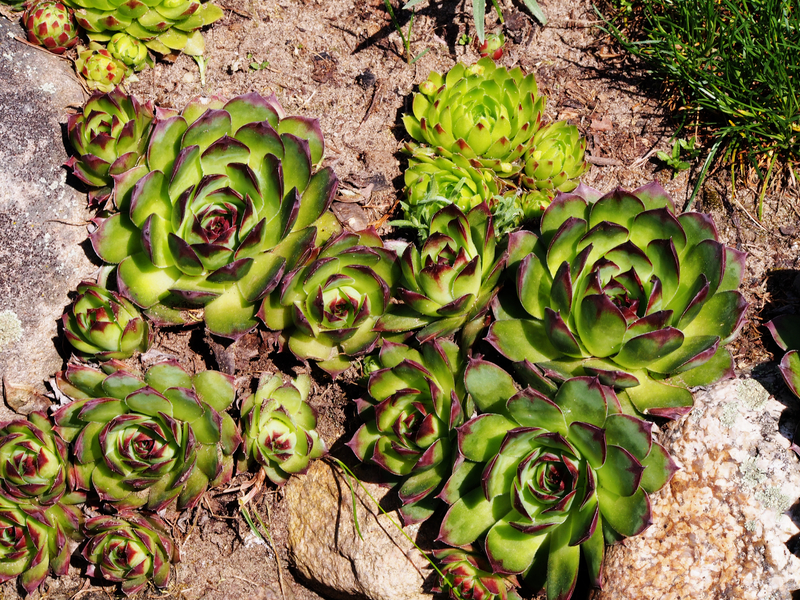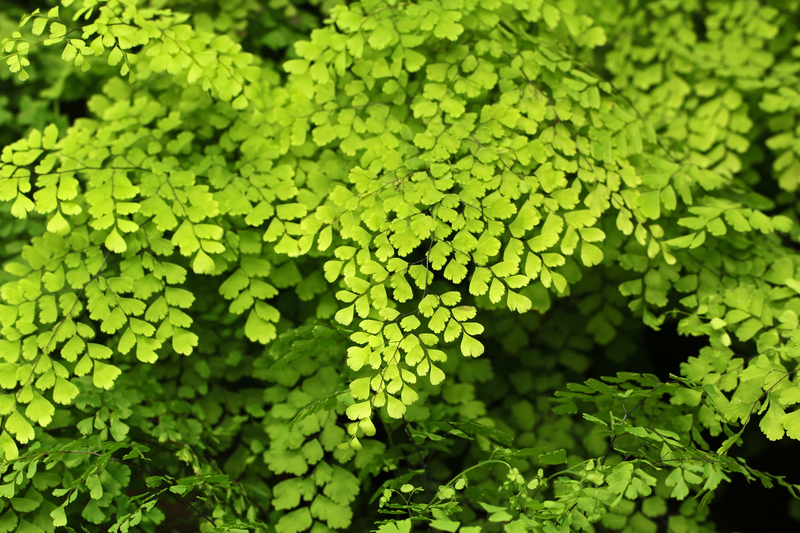Gardening Made Easy: 9 Essential Tips for Beginners
Posted on 28/05/2025
Gardening Made Easy: 9 Essential Tips for Beginners
Starting your very own garden may seem intimidating, but with the right advice and a little enthusiasm, anyone can become a successful gardener. Whether you want to grow lush vegetables or bright, vibrant flowers, learning the gardening basics is the first step towards creating your dream outdoor space.
In this comprehensive guide, we'll walk you through gardening made easy with 9 essential tips for beginners. From planning your garden to maintaining it through every season, these tips cover everything you need to know to get started and achieve thriving results. Let's dig in!
Why Start Gardening? The Joys and Benefits
Before we dive into these beginner gardening tips, it's helpful to know why gardening is such an excellent hobby:
- Stress Relief: Gardening has been proven to reduce stress and anxiety, providing a calming escape from daily routines.
- Healthy Living: Home-grown fruits and vegetables are fresher, tastier, and often more nutritious than store-bought produce.
- Environmental Impact: Supporting local pollinators, improving air quality, and reducing your carbon footprint all result from a simple garden.
- Sense of accomplishment: Seeing your plants thrive brings immense pride and joy.

Gardening Made Easy: 9 Essential Tips for Beginners
1. Start Small and Simple
If you're new, easy gardening for beginners means not biting off more than you can chew. A modest plot, a few containers, or window boxes are perfect for your first season. Starting small ensures you won't feel overwhelmed, and it's easier to manage and maintain.
- Choose 3-5 plant varieties that suit your interests and region.
- Use raised beds or containers to control soil quality and reduce weeds.
- Remember: Successful small gardens can expand over time!
2. Understand Your Growing Zone
Before planting, research your local USDA Hardiness Zone. This determines which plants will thrive in your region's climate and when to plant them.
- Check local gardening websites or extension services for your zone information.
- Choose plants labeled as suitable for your area to increase your chances of success.
3. Pick the Right Location
Sunlight and shelter are key elements of beginner-friendly gardening. Observe your yard or balcony throughout the day.
- Most vegetables and many flowers need 6-8 hours of direct sunlight daily.
- Consider wind protection and ease of water access.
- For shade-loving plants, pick spots with filtered light.
4. Test and Prepare the Soil
Good soil equals healthy plants. Many newbies overlook this crucial step, but it's one of the most important parts of successful gardening.
- Purchase a simple soil test kit from your local nursery or online.
- Assess pH level and nutrient content.
- Amend soil with compost, organic matter, or quality potting mix as needed.
- Loose, well-draining soil is ideal for almost all plants.
5. Select the Right Plants
One of the keys to easy beginner gardening is selecting plants that are naturally hardy and well-suited for your environment.
- Look for "easy to grow," "drought tolerant," or "disease resistant" on labels and seed packets.
- Visit local nurseries for advice on low-maintenance varieties ideal for novices.
- Start with herbs (like basil or mint), sunflowers, marigolds, or lettuce if you're unsure.
6. Water Wisely
Plants need just the right amount of water--not too much, not too little. Proper watering habits are crucial for any first time gardener.
- Water early in the morning or late afternoon to reduce evaporation and prevent fungal disease.
- Check soil moisture before watering; stick your finger an inch into the soil.
- Most beginner gardens need around one inch of water per week, including rain.
- Use a watering can or soaker hose for gentle, deep watering.
7. Mulch for Healthier Plants
Mulching is often overlooked but makes gardening easier for beginners. Mulch conserves moisture, suppresses weeds, and improves soil over time.
- Spread a 2-3 inch layer of organic mulch (straw, wood chips, bark, or even grass clippings) around plants.
- Keep mulch a few inches away from plant stems to prevent rot.
- *Mulching saves time, effort, and water throughout the growing season!*
8. Feed Your Plants
Easy gardening tips for beginners always include feeding your plants. Like humans, plants need balanced nutrition to grow strong.
- Use slow-release fertilizers or organic compost for steady nourishment.
- Follow instructions on the label to avoid over-fertilizing (which can damage roots).
- Be consistent--regular feeding helps keep plants healthy and productive.
9. Be Patient and Observe
Great gardens aren't built overnight! Patience and careful observation are hallmarks of successful beginner gardening.
- Check your plants regularly for signs of pests, disease, or stress.
- Remove dead leaves and spent blooms to encourage healthy new growth.
- Celebrate every small success, and don't be discouraged by setbacks.
- Gardening is an ongoing learning process--enjoy each step!
Common Mistakes First-Time Gardeners Should Avoid
There's a learning curve to easy gardening for beginners. Here are a few common mistakes to watch out for:
- Overwatering or underwatering: Both can harm your plants. Always check soil moisture first.
- Planting too early or late: Know your area's frost dates and stick with the recommended planting schedule.
- Ignoring soil quality: Skipping soil testing or improvement can lead to poor results.
- Crowding plants: Give each plant enough space to prevent competition for nutrients and airflow issues.
- Choosing difficult plants: Start with hardy, proven varieties to build your confidence.
Frequently Asked Questions About Gardening for Beginners
What are the easiest vegetables to grow for beginners?
If you want gardening made easy, start with:
- Lettuce
- Radishes
- Green beans
- Tomatoes (especially cherry tomatoes)
- Zucchini
How often should a beginner water their garden?
Typically, a new garden will need about one inch of water per week. Check the soil regularly; if the top inch is dry, it's time to water. Be aware that containers and raised beds dry out faster than in-ground gardens.
What should I plant in a small or balcony garden?
Herbs, salad greens, cherry tomatoes, and compact flowers like pansies or nasturtiums are perfect for small spaces. Use containers or vertical planters to maximize your area.
Can I start gardening without a backyard?
Absolutely! Container gardening makes it possible to grow plants on patios, balconies, windowsills, or even indoors with adequate light.
How do I stop bugs and pests naturally?
- Encourage beneficial insects (like ladybugs and lacewings).
- Use physical barriers (row covers, netting) as needed.
- Hand-pick larger pests whenever possible.
- Try homemade sprays with soap and water for soft-bodied insects.
Gardening Made Easy: A Beginner's Seasonal Checklist
Spring
- Test and amend soil as needed.
- Sow cool-season crops (lettuce, peas, radish).
- Clean up garden beds, mulch, and prune as needed.
Summer
- Water deeply and consistently.
- Harvest mature crops regularly.
- Watch for pests, weeds, and signs of disease.
Fall
- Plant bulbs for spring flowers.
- Add compost and organic matter to beds.
- Remove spent plants and clean tools for storage.
Winter
- Plan next year's garden and order seeds.
- Sharpen and repair tools.
- Start seeds indoors for early spring planting (where climate allows).

Helpful Tools and Resources for Beginning Gardeners
- Hand trowel and pruners: Essential for digging and basic maintenance.
- Watering can or hose with adjustable nozzle: For gentle, consistent watering.
- Gardening gloves: Protect your hands from blisters and dirt.
- Garden kneeler or pad: Comfort while working close to the ground.
- Notebook or garden planner: Track your planting dates, successes, and lessons learned.
Final Thoughts: Embrace the Joy of Gardening
Gardening made easy is truly within your grasp. By following these essential beginner gardening tips, you're well on your way to creating a lush, beautiful, and productive outdoor (or indoor!) space. Remember, gardening is a journey--a mix of experiment, observation, and delight. Each season brings new adventures, learning opportunities, and the satisfaction of watching life grow from seed to harvest.
Don't be afraid to get your hands dirty--nature rewards the patient and curious. Happy gardening!
If you found these beginner gardening tips useful, share this guide with friends and fellow first-time gardeners. Have questions or your own experiences to add? Leave a comment below--we'd love to hear from you!
Latest Posts
The Secrets Behind Successful Container Gardening
Planting Seeds of Hope to Combat Climate Change
Creative Vertical Gardening for Urban Areas

